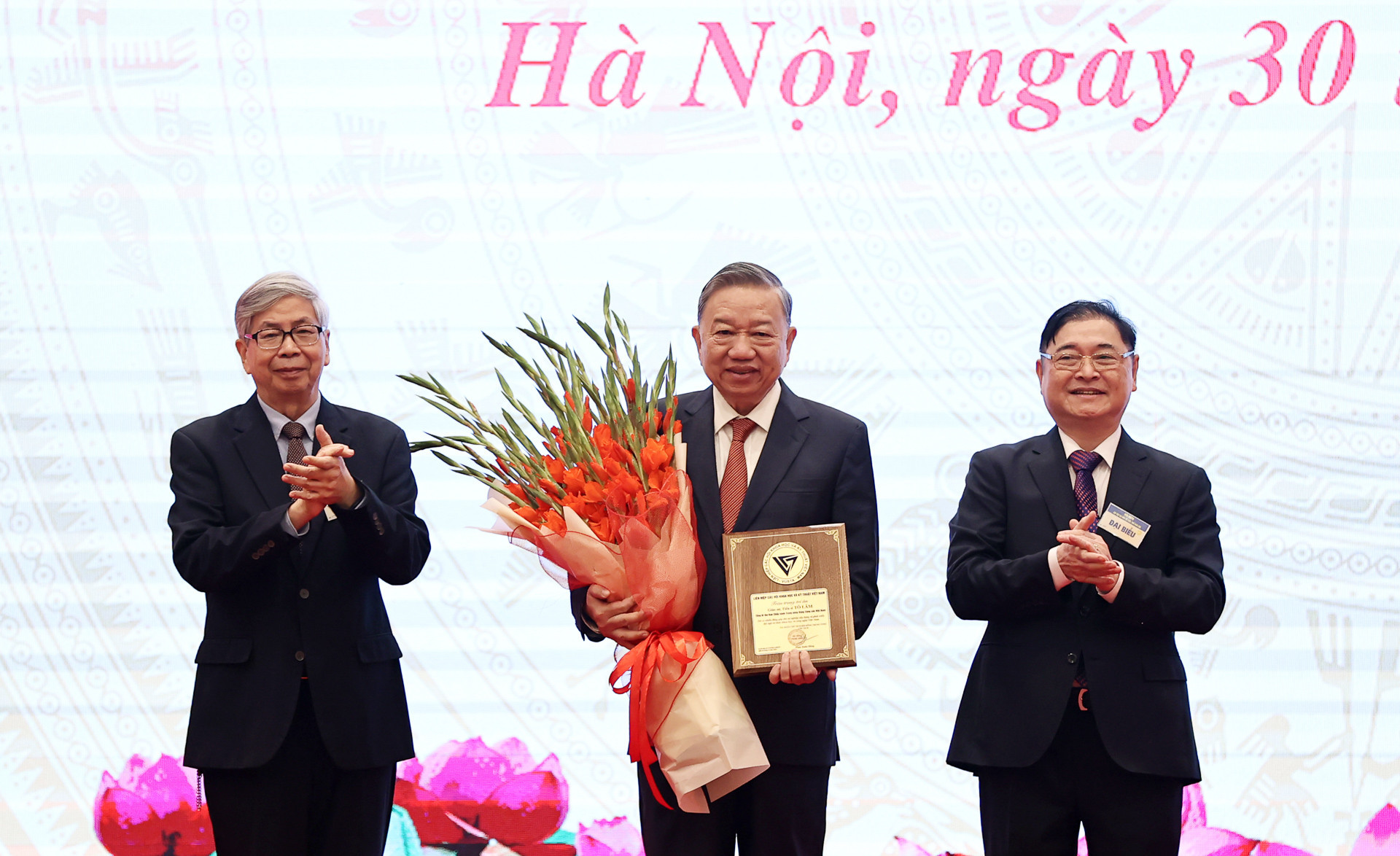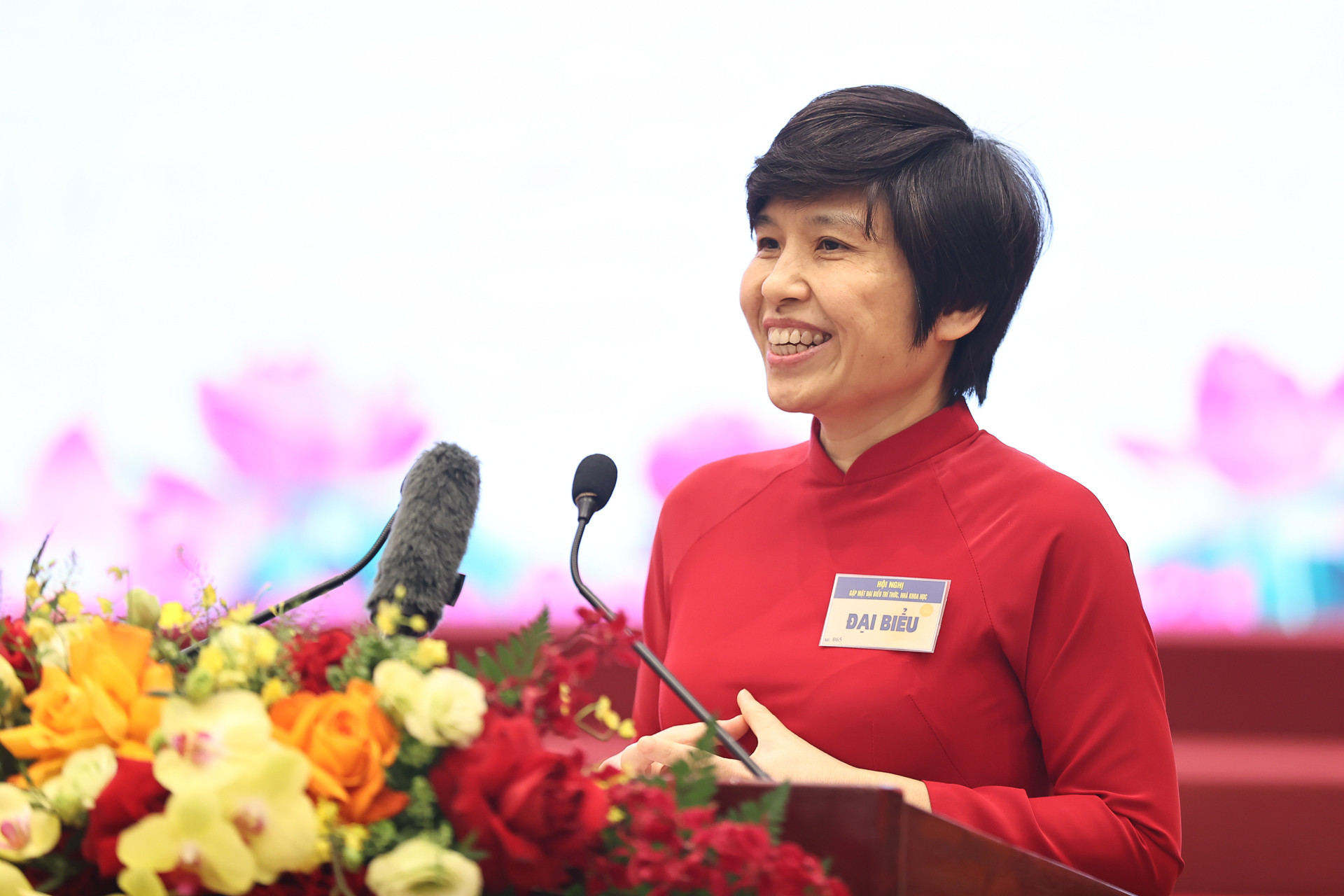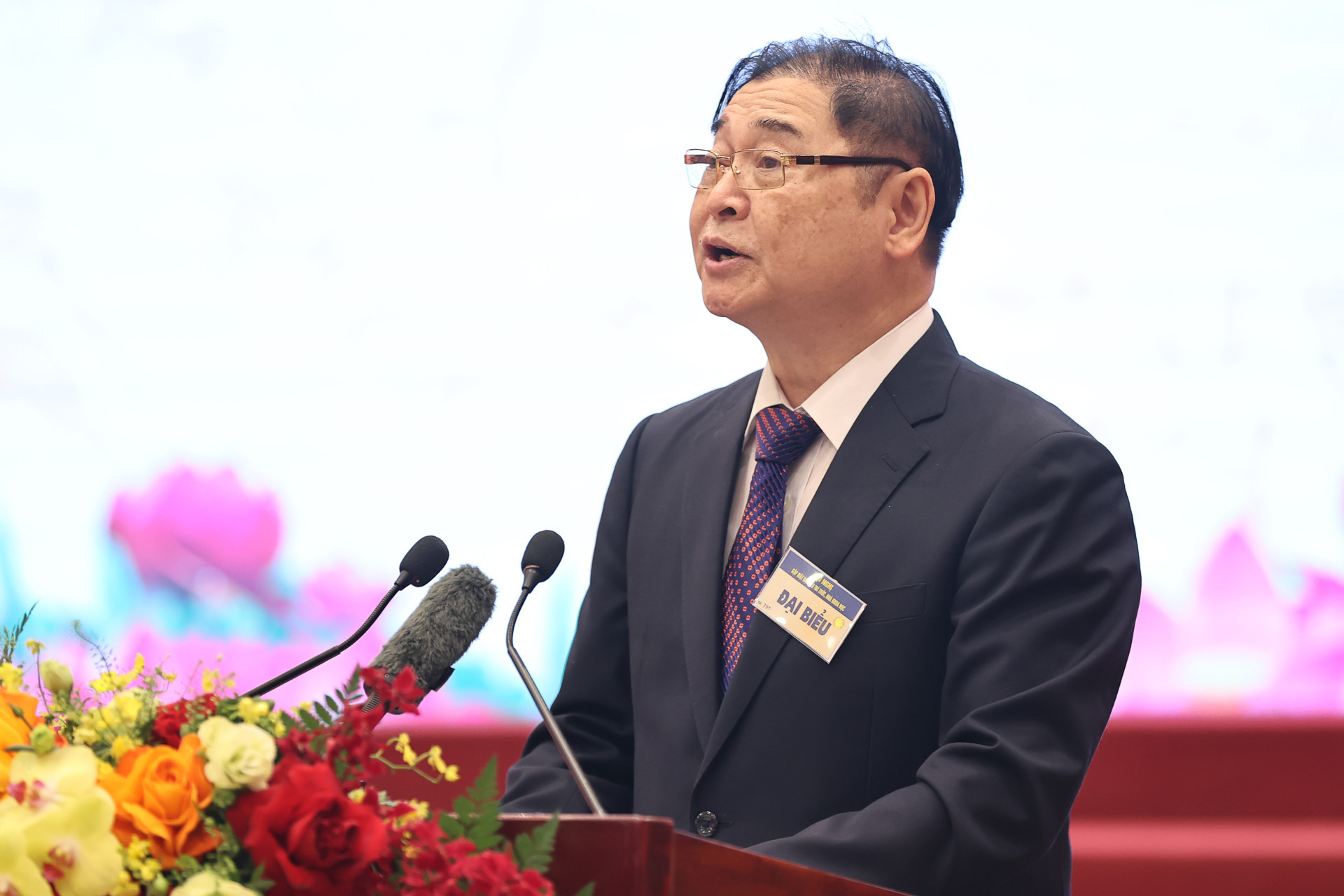"Many scientists have had to make sacrifices. Personally, I had to mortgage my family’s land title to pursue my passion, striving to move research from the lab, through the ‘transitional zone,’ and into commercial products," said Professor Vu Thi Thu Ha at a meeting with General Secretary To Lam and other intellectuals and scientists on December 30.
Challenges in scientific research

Professor Vu Thi Thu Ha, Deputy Director of the Vietnam Institute of Industrial Chemistry, emphasized the need to address the specific challenges faced by scientists and the scientific community to unlock their full potential.
She explained that scientists require policies that inspire passion and dedication. However, many are often bogged down with administrative tasks that consume significant energy.
"Scientists frequently expend up to 50% of their effort on non-scientific tasks, which, while unrelated to their research, are necessary to complete their work,” she said.
Professor Ha proposed streamlining processes to allow scientists to focus entirely on their work. She suggested implementing product-oriented funding mechanisms, reducing intermediary procedures, and setting up bidding systems where researchers can compete for projects, eliminating the need for excessive meetings and negotiations over minor details.
She also called for solutions to bridge the "transitional zone," a costly and complex phase that takes lab research to commercialization. Sharing her experience, she revealed, "I had to mortgage my family’s land title to fund my research through this transitional zone to create commercial products that contribute to the country."

Structural reforms and financial support

Phan Xuan Dung, Chairman of the Vietnam Union of Science and Technology Associations (VUSTA), advocated for creating an environment that empowers scientists to think boldly and act decisively.
Quoting Archimedes, he called for the Party and State to serve as a “fulcrum” for intellectuals and scientists, enabling them to achieve extraordinary results. He emphasized that reforms in organizational structures and resource allocation must be undertaken with high political determination.
Dung urged the government to entrust major national projects, such as the North-South high-speed railway and Long Thanh International Airport, to Vietnamese enterprises and intellectuals. This, he said, would foster innovation and strengthen the country’s scientific capacity.
He also praised Resolution 57 by the Politburo, which allocates 3% of the national budget for science and technology development. He called for part of these funds to be directed to research projects, with allocations made at the start of the fiscal year to ensure timely access to resources.
Nguyen Quan, former Minister of Science and Technology, highlighted persistent bottlenecks in research and application. Many excellent projects remain unused due to issues with ownership rights and valuation of state-funded research outcomes.
He recommended revising laws to grant scientists full ownership of their research and control over the valuation process when transferring technology to businesses, ensuring the government recovers its investment through taxation.
General Secretary’s commitment to innovation
Listening to the feedback, General Secretary To Lam reaffirmed the importance of science, technology, and innovation as key drivers for Vietnam’s progress.
“Only science, technology, and innovation can help us keep pace, advance together, and surpass ourselves and the world,” he said.
He urged the Party and State to modernize recruitment, training, and utilization of intellectuals and scientists. This includes implementing measures to honor and support them, promoting a renewed mindset about their critical role in national development, and fostering an environment where talent is highly valued.
Thu Hang